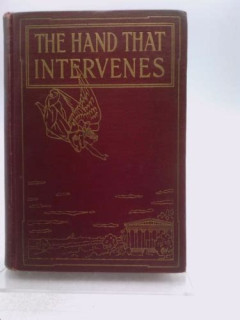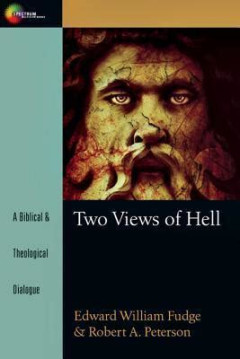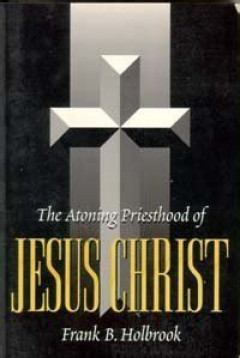Filter by

The Hand That Intervenes
The Hand That Intervenes by W. A. Spicer is an inspiring account of divine providence and the guiding hand of God in human affairs. Spicer reflects on historical and personal experiences that demonstrate how God’s intervention shapes the destiny of individuals, nations, and the church. The book emphasizes faith, divine guidance, and the assurance that God’s will prevails even amidst human u…
- Edition
- -
- ISBN/ISSN
- -
- Collation
- 334 p.
- Series Title
- -
- Call Number
- PS 3309 S65 1918

The Knocking at the Door
The Knocking at the Door by Robert J. Wieland explores the spiritual condition of the Seventh-day Adventist Church in light of the message of Christ in Revelation 3:14–21 to the Laodicean church. Wieland argues that Christ is figuratively “knocking” at the door of the modern church, calling for repentance, renewal, and acceptance of His righteousness. The book emphasizes the 1888 message …
- Edition
- -
- ISBN/ISSN
- -
- Collation
- 114 p.
- Series Title
- -
- Call Number
- BX 6125 W54 1983

Introducing The New Testament: Its Literature and Theology
Introducing the New Testament: Its Literature and Theology provides a comprehensive exploration of the New Testament’s structure, message, and theological themes. Achtemeier, Green, and Thompson skillfully combine literary, historical, and theological approaches to help readers understand the diverse writings within the New Testament and their relevance to Christian faith and practice. The bo…
- Edition
- -
- ISBN/ISSN
- 9780802837172
- Collation
- 624 p.
- Series Title
- -
- Call Number
- BS 2330.3 A34 2001

Two Views of Hell
Two Views of Hell presents a theological dialogue between Edward Fudge and Robert A. Peterson on one of Christianity’s most debated topics—the nature and duration of hell. Fudge defends the conditionalist or annihilationist view, arguing that the wicked will ultimately cease to exist, while Peterson upholds the traditional doctrine of eternal conscious torment. Each author presents scriptur…
- Edition
- -
- ISBN/ISSN
- 9780830822553
- Collation
- 228 p.
- Series Title
- -
- Call Number
- BT 836.2 F83 2000

Gospel Parallels: A Synopsis of the First Three Gospels
Gospel Parallels by Burton H. Throckmorton Jr. is a comprehensive comparative study of the Synoptic Gospels—Matthew, Mark, and Luke—arranged in parallel columns for detailed analysis. This work enables readers, scholars, and students to identify similarities and differences in wording, structure, and perspective across the three accounts of Jesus’ life and ministry. Designed as a practica…
- Edition
- New Fourth Edition
- ISBN/ISSN
- 0840751508
- Collation
- 191 p.
- Series Title
- -
- Call Number
- BS 2560 1979

101 Questions About Ellen White and Her Writings
This book by William Fagal provides clear and concise answers to common questions about the life, ministry, and writings of Ellen G. White, a co-founder of the Seventh-day Adventist Church. It addresses misconceptions, explores the inspiration and authority of her work, and offers practical insights for readers seeking to understand her role within Adventist theology. Designed as both an educat…
- Edition
- -
- ISBN/ISSN
- -
- Collation
- 224 p.
- Series Title
- -
- Call Number
- BX 6193 W5F34 2010
The Westminster Tanner-McMurrin Lectures on the History and Philosophy of Rel…
This book presents an intellectual exploration of the enduring relationship between faith and reason. Through the Tanner-McMurrin lecture series, Martin E. Marty offers thoughtful perspectives on how religious belief interacts with history and philosophical inquiry, inspiring readers to engage critically with the spiritual and intellectual heritage of humanity.
- Edition
- -
- ISBN/ISSN
- -
- Collation
- 23 p.
- Series Title
- -
- Call Number
- BL 65 M37 1989

Karl Barth
Mueller’s work provides a clear and accessible study of Karl Barth’s theology, offering readers insight into his central themes of God’s sovereignty, the primacy of Christ, and the role of Scripture in faith. The book serves as both an introduction for students of theology and a guide for deeper understanding of Barth’s enduring influence on modern Christian thought.
- Edition
- -
- ISBN/ISSN
- 0876802544
- Collation
- 172 p.
- Series Title
- -
- Call Number
- BX 4827 M8 1972

Perfection: The Impossible Possibility
This volume explores the doctrine of perfection from multiple Adventist perspectives, balancing the call to holy living with the reality of human weakness. By presenting diverse theological viewpoints, the book aims to clarify misunderstandings about sinless living and emphasize Christ’s righteousness as the basis for salvation.
- Edition
- -
- ISBN/ISSN
- -
- Collation
- 200 p.
- Series Title
- -
- Call Number
- BT 766 D65 1975

The Atoning Priesthood of Jesus Christ
This work highlights the central Adventist belief in Christ’s continuing priestly ministry in the heavenly sanctuary. Holbrook explains the significance of Jesus’ sacrifice and intercession for salvation, grounding his discussion in Scripture and Adventist doctrine. It serves both as a theological resource and as a devotional reminder of God’s redemptive plan through Christ’s priesthood.
- Edition
- -
- ISBN/ISSN
- 0925675164
- Collation
- 250 p.
- Series Title
- -
- Call Number
- BT 260 H65 1996